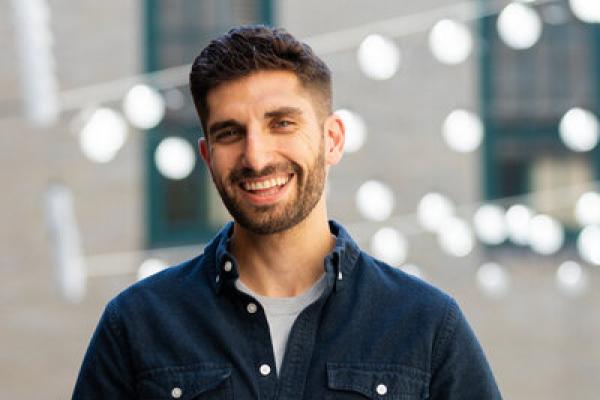How Social Media Habits Are Reshaping Our Minds - A Data Science Spotlight on Joseph Bayer's Research

This week in our Data Science Spotlight we are highlighting TDAI core faculty member, Joseph Bayer, and his interesting research into the world of social media and its effects on our behavior and actions as people.
Q: What are some big challenges that you aim to solve with your research?
A: My research grapples with how our minds are changing due to mobile and social media habits, along with the implications for individual well-being and social connection. I am particularly interested in how people handle the demands of so-called "constant connectivity" in society that comes with smartphones and social platforms — and how people develop healthy (dis)connection habits to keep digital stress under control.
Q: What about the research you are doing excites you the most?
A: My lab is increasingly focused on how we detect habitual behavior with digital trace data (e.g., app logs, notifications, screenshots), with the long-term aim of helping people reflect on and refine their digital habits in a self-driven manner. More generally, my lab is attempting to organize and advance the use of "mobile methods" — i.e., data collection approaches based on mobile and wearable devices that help researchers collect digital, physiological, and self-report measures (often all at once!). Indeed, researchers across more and more disciplines are seeing the potential of data collection methods that are "more mobile" — i.e., more naturalistic, more immediate, and more intensive. Hence, I argue we need more translational research in order to share the lessons learned across labs and agree on shared standards across fields.
Q: Why does this matter in society today?
A: It has been interesting to see my area of research — i.e., the psychological implications of phones and social media — go from a semi-niche research area when I was a young graduate student to a national crisis conversation as an associate professor. While this is intuitively important in the sense that most people agree we need to prioritize well-being and social connection, what is harder to agree on is how we balance the merits and risk of online technologies. It's also hard to define the solution in a way that empowers users and works within the limits of our digital ecosystem.
Q: What do you want people to know about your work?
A: One thing I like to tell people I meet in the world is that you need to know your personality when thinking about how to use social technologies right. In other words, we are recognizing that many of the effects of digital media are person-specific, and that design in turn must be person-centered.
Q: What made you want to be in this field of research?
A: I was interested in social psychology as far back as high school (or perhaps before, though I didn't have the vocabulary for it then). When I was in college, the iPhone trickled into my social world and this struck me as earth-shattering event — or at least enough to shift my honors thesis topic. Ever since then, I have been repeatedly fascinated by the interaction of psychological processes and communication technologies. Indeed, some of the earliest questions I asked on my thesis project still echo into my lab today, such as the role of time perception in driving our smartphone habits.
Q: What impact has TDAI had on your interdisciplinary research and collaborations?
A: I continue to feel at home within the culture of TDAI given my commitment to interdisciplinary approaches and applications, including my lab's key focus on the implications of mobile methods and digital data. Notably, I have repeatedly engaged with TDAI and leveraged opportunities during my time as a Core Faculty member, including giving a talk as part of a TDAI seminar series and receiving a seed grant from TDAI. Most recently, I traveled with a TDAI group to the University of Tsukuba in Japan as part of a research collaboration initiative, which helped to lay the groundwork for a new cross-cultural project using social media data that my lab is initializing this summer.
